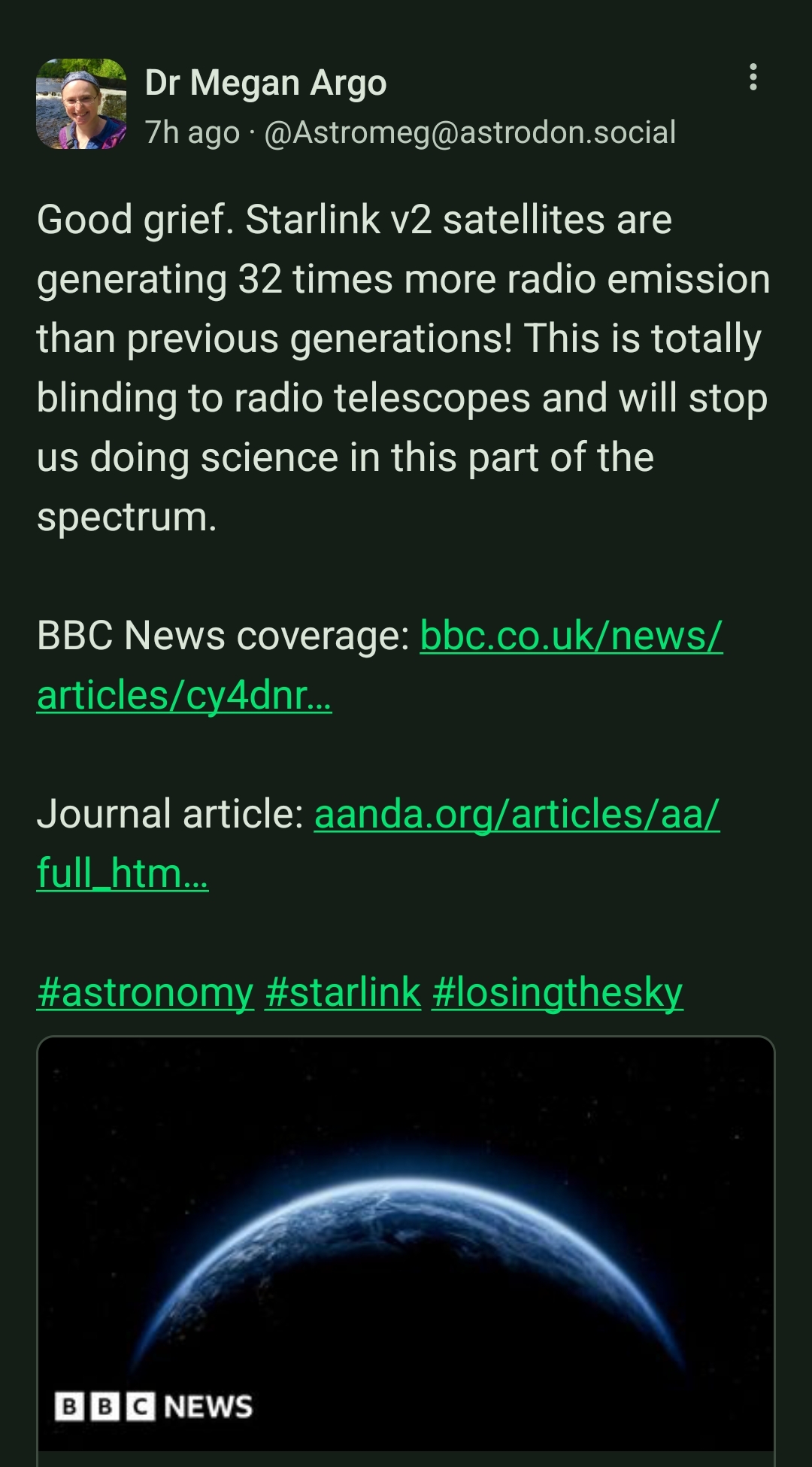this post was submitted on 18 Sep 2024
1220 points (97.4% liked)
Microblog Memes
5832 readers
1899 users here now
A place to share screenshots of Microblog posts, whether from Mastodon, tumblr, ~~Twitter~~ X, KBin, Threads or elsewhere.
Created as an evolution of White People Twitter and other tweet-capture subreddits.
Rules:
- Please put at least one word relevant to the post in the post title.
- Be nice.
- No advertising, brand promotion or guerilla marketing.
- Posters are encouraged to link to the toot or tweet etc in the description of posts.
Related communities:
founded 1 year ago
MODERATORS
you are viewing a single comment's thread
view the rest of the comments
view the rest of the comments

Honestly astronomy from space is notoriously difficult, for various reasons.
There's a lot of pros and cons. Neither solution is better than the other. They're only better at certain things. We need both.
The seemingly straightforward solution is that SpaceX needs to be legally required to get into the radio astronomy business. As part of being allowed to launch such noisy satellites. If they are going to wreck radio astronomy on Earth's surface, they should have to launch orbital radio telescopes of such quality and quantity that SpaceX is actually a vast net boon on radio astronomy. This should simply be a legally required cost of doing business if they want to launch so many noisy satellites. Yes, these orbital telescopes would have a finite lifespan and need to be regularly replaced to be updated, but thankfully the greatest rocket company on Earth will be legally required to launch them regularly.
That could potentially help, but only to nations/groups that they give the data to. Other groups would still be getting fucked.
It's scientific data, and considering the context, the rightful property of all mankind. Give it universally to any an all.
Easier said than done.